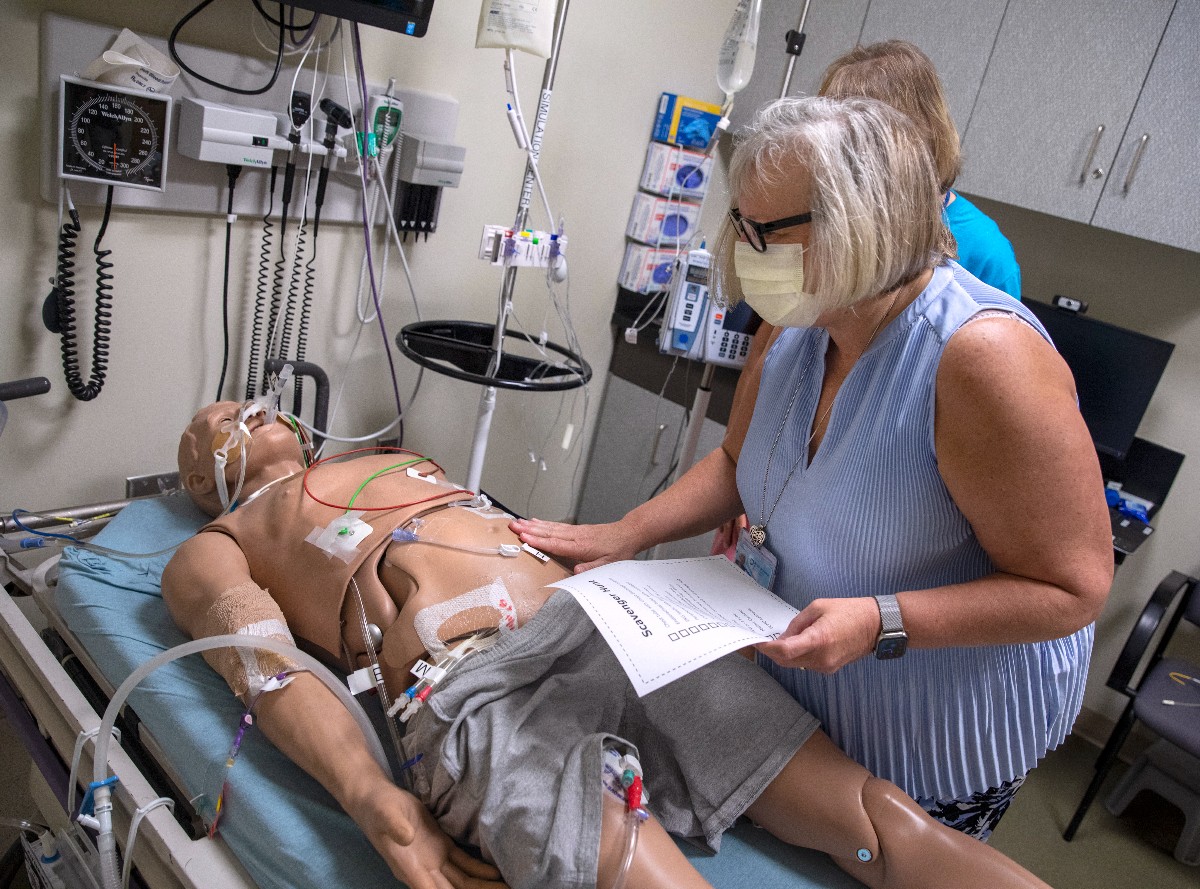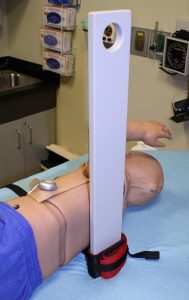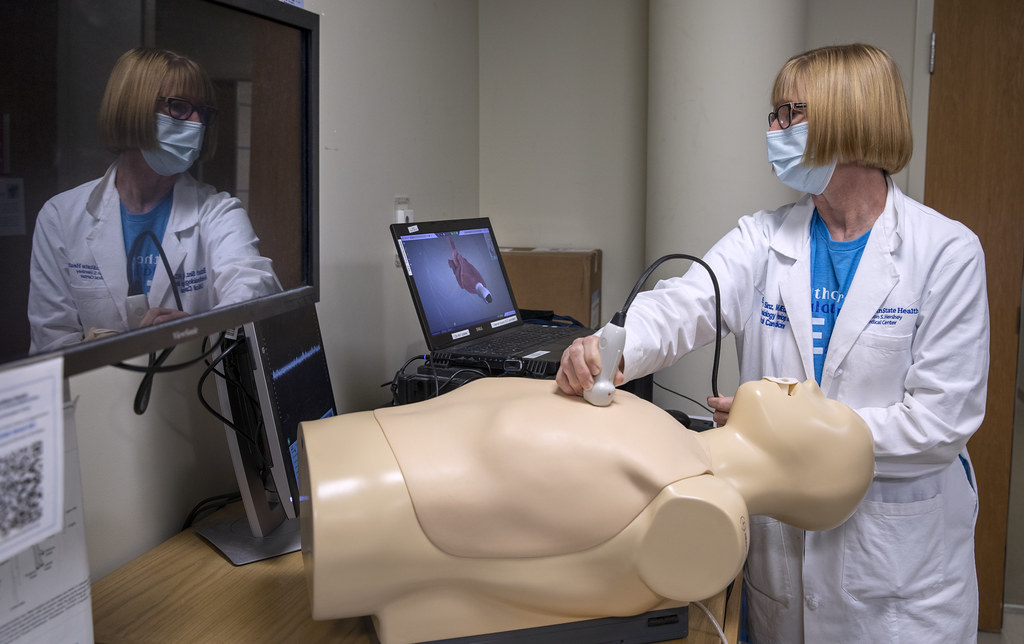Clinical Simulation Center recognized for excellence in health care education, research

Society for Simulation in Healthcare reaccredits Clinical Simulation Center, awards initial accreditation to fellowship program
The Society for Simulation in Healthcare recognized the Clinical Simulation Center at Penn State College of Medicine and Penn State Health Milton S. Hershey Medical Center for its excellence in teaching aspiring and current health care professionals clinical skills and researching new training methods and patient care techniques. The Center was awarded full reaccreditation for five years and initial accreditation for its simulation education and research fellowship.
The Simulation Center strives to improve patient outcomes by enhancing health care practitioner skills, clinical competence and teamwork. In 2021, more than 19,400 learners — including nurses and nursing students, medical and physician assistant students, physicians and physician assistants, and other allied health care professionals like pharmacy and physical therapy students — spent a combined 59,575 hours in more than 2,200 sessions learning a variety of skills from CPR and intubation to surgical techniques and patient communication.
The renowned facility has more than 9,500 square feet of dedicated simulation space with state-of-the-art simulators including computer-controlled manikins, task trainers, virtual reality flat screen simulators and clinical equipment. The Center also oversees the Standardized Patient Program, where community members are recruited and coached to role-play patient case scenarios so clinicians and students can learn and practice communication and key clinical skills.
“These recognitions are a testament to the Center’s dedication to exceptional training methods and innovative research practices,” said Dr. Elizabeth Sinz, associate dean for clinical simulation and director of the Clinical Simulation Center. “We are a valuable resource not just for our students and workforce, but for our community as well.”
Community Impact and Innovation
In addition to training aspiring and current health care professionals, the Simulation Center works to improve community health by offering training activities to allied health care professions students from other institutions, first responders and other members of the community.
In coordination with Penn State Health Trauma Education, the Center offers the Stop the Bleed program to Pennsylvania State Police cadets. Using standardized patients, manikins and other resources, the simulations help cadets improve tourniquet application and learn more about additional topics including child passenger safety, basic first aid, moving victims and triage assessment and communication.
The Simulation Center also supports a variety of programs for high school students interested in health care careers including the Department of Surgery’s Emerging Healthcare Professionals – Science of Surgery Summer Camp Program, which provides local high school students with the opportunity to learn hands-on surgical skills such as suturing, placing central lines and chest tubes, and performing intubations.

The Clinical Simulation Center assisted care teams at Hershey Medical Center in developing and testing an alternative CPR method for a pediatric patient, including this custom backboard.
In addition to community education, the Center assisted care teams at Hershey Medical Center with developing and testing an alternative CPR approach for a pediatric patient with a form of severe scoliosis, or curvature of the spine. Since traditional CPR methods would not work for the patient, the team developed an alternative format for CPR, including a custom backboard with a stabilization system. The backboard and technique were used to restore the patient to spontaneous circulation when the child was readmitted for respiratory failure and experienced cardiac arrest.
To advance the field of health care simulation, the Center conducts innovative research into simulation theory, practice and technology. Researchers compare different educational approaches and strategies, evaluate policies, procedures and systems, and develop designs for new simulators and patient care products. One example is an Agency for Healthcare Research and Quality-funded study exploring how expert physicians think through a challenging case compared to beginner physicians. Another funded study involves a partnership with Penn State College of Engineering where faculty are developing a haptic device for teaching the placement of central lines. The Center is also well known for its comprehensive Simulation Instructor Course, offered in English, Spanish and Portuguese.
In addition to the Center’s reaccreditation, its Simulation Education and Research Fellowship also received initial accreditation. The Center is one of the first in the world to receive full accreditation for a simulation fellowship. Alumni of the program have learned education methodologies and practices while engaging in simulation research.
“Our outstanding director, team and the interprofessional and multidisciplinary faculty at the Clinical Simulation Center provide innovative teaching and assessment for our faculty, staff and students so they may provide the best possible care to present and future patients,” said Dr. Erica Friedman, vice dean for educational affairs. “Reviewers were impressed with the Center’s legacy of outstanding education and forward-thinking research and our educational community is exceptionally proud of the Center’s reaccreditation and the fellowship’s initial accreditation.”
To recognize these milestones, the Clinical Simulation Center will host an open house on Monday, Sep. 12 from 10 a.m. to 2 p.m. to coincide with the beginning of Health care Simulation Week.
Learn more about the Clinical Simulation Center
Learn more about the Standardized Patient Program
If you're having trouble accessing this content, or would like it in another format, please email Penn State Health Marketing & Communications.

